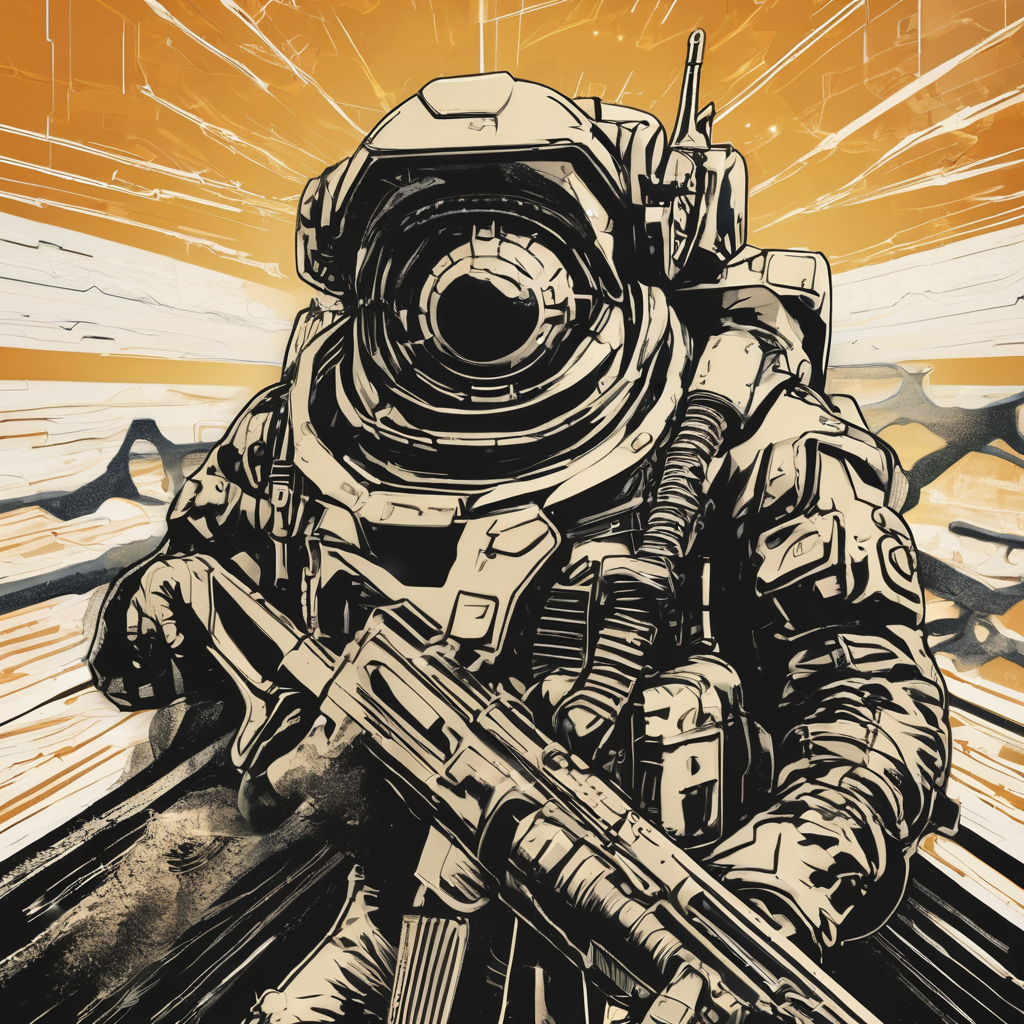Mastering the Mental Game: Top Strategies for Competitive Diving Preparation
Understanding the Mental Game in Diving
When it comes to competitive diving, the mental aspect of the sport is just as crucial as the physical. Divers need to be mentally tough to perform at their best, especially under the pressure of competition. Here, we delve into the world of sports psychology to explore the top strategies that can help divers master their mental game.
The Importance of Mental Toughness
Mental toughness is the ability to perform at a high level even when faced with adversity. In diving, this could mean overcoming fear, managing stress, and maintaining focus. As Lothar Linz, a sports psychologist, emphasizes, “Grâce aux routines mentales, les athlètes sont capables de se calmer et de rester concentrés,” which is essential for peak performance in diving[3].
In parallel : The Ethical Dilemmas and Health Consequences of Genetic Engineering in Athletic Performance
Strategies for Mental Preparation
Goal Setting
Setting clear and achievable goals is a fundamental strategy in mental preparation. This helps athletes stay focused and motivated. Here are some steps to effective goal setting:
- Specific Goals: Define what you want to achieve, whether it’s improving your technique or increasing your overall score.
- Measurable Goals: Quantify your goals so you can track progress.
- Achievable Goals: Ensure your goals are realistic and attainable.
- Relevant Goals: Align your goals with your overall vision and values.
- Time-bound Goals: Set deadlines for achieving your goals.
For example, a diver might set a goal to master a new dive within the next three months, with specific milestones along the way.
Also to see : Exploring the Moral Dilemmas of Gene Doping in Athletics: A Deep Dive into Sports Ethics
Positive Self-Talk
Positive self-talk is a powerful tool for building confidence and mental strength. Athletes can use affirmations to reinforce positive thoughts and overcome negative self-talk.
- Daily Affirmations: Start each day with positive affirmations, such as “I am capable and confident in my abilities.”
- Pre-Competition Routine: Use positive self-talk as part of your pre-competition routine to calm nerves and boost confidence.
- Post-Performance Reflection: Reflect on your performance with a positive mindset, focusing on what you did well and what you can improve.
As Maroussia Paré, an Olympic athlete and psychologist, notes, “Positive self-talk can significantly impact your mental game by boosting your confidence and reducing anxiety”[4].
Visualization Techniques
Visualization is a technique where athletes mentally rehearse their performances. This can help in several ways:
- Enhance Performance: Visualize yourself performing the dive perfectly to build confidence and muscle memory.
- Manage Stress: Visualize different scenarios, including those that might cause stress, to prepare mentally.
- Improve Focus: Use visualization to maintain focus and concentration during competitions.
For instance, a diver could visualize the entire dive, from the approach to the entry into the water, to mentally prepare and reduce anxiety.
Breathing and Relaxation Techniques
Proper breathing and relaxation techniques can help athletes manage stress and stay calm under pressure.
- Deep Breathing: Practice deep, controlled breathing to calm the mind and body.
- Progressive Muscle Relaxation: Tense and then relax different muscle groups to release physical tension.
- Mindfulness Meditation: Use mindfulness meditation to stay present and focused.
Monika Kurath, a specialist in coach training, recommends “stratégies de gestion du stress” such as these to help athletes find balance and perform better[3].
The Role of the Coach in Mental Preparation
Providing Support and Guidance
Coaches play a crucial role in helping athletes develop their mental game. Here are some ways coaches can provide support:
- Personalized Training Packages: Create training packages that include mental training tailored to the athlete’s needs.
- Regular Feedback: Provide regular feedback that focuses not only on physical performance but also on mental toughness.
- Encouraging Open Communication: Foster an environment where athletes feel comfortable discussing their mental challenges.
As Sergio Lara-Bercial notes, “Sans équilibre, pas de succès sur le long terme,” emphasizing the importance of coaches also taking care of their own mental well-being to effectively support their athletes[3].
Table: Comparing Mental Training Techniques
| Technique | Description | Benefits | Examples |
|---|---|---|---|
| Goal Setting | Setting specific, measurable, achievable, relevant, and time-bound goals. | Enhances focus and motivation. | Setting a goal to master a new dive within three months. |
| Positive Self-Talk | Using affirmations to reinforce positive thoughts. | Boosts confidence and reduces anxiety. | Daily affirmations like “I am capable and confident.” |
| Visualization | Mentally rehearsing performances. | Enhances performance, manages stress, and improves focus. | Visualizing the entire dive from approach to entry. |
| Breathing and Relaxation | Techniques like deep breathing, progressive muscle relaxation, and mindfulness meditation. | Manages stress and keeps athletes calm under pressure. | Deep breathing exercises before a competition. |
| Mental Rehearsal | Mentally practicing different scenarios, including those that might cause stress. | Prepares athletes mentally for various situations. | Visualizing different competition scenarios. |
Practical Insights and Actionable Advice
Learning from Other Sports
While diving has its unique challenges, athletes can learn valuable mental strategies from other sports. For example, combat sports like jiu jitsu emphasize the importance of mental toughness and resilience.
- Resilience Training: Incorporate resilience training into your routine, such as learning to overcome setbacks and failures.
- Mental Strength: Develop mental strength through techniques like positive self-talk and visualization, which are also used in combat sports[4].
Fitness Tips for Mental Health
Physical fitness is closely linked to mental health. Here are some fitness tips that can also benefit your mental game:
- Regular Exercise: Engage in regular physical activity to improve mood and reduce stress.
- Balanced Diet: Maintain a balanced diet to support both physical and mental health.
- Adequate Sleep: Ensure you get adequate sleep to help your mind and body recover.
As the World Health Organization (WHO) notes, “L’activité physique régulière améliore la santé mentale et physique de tous les âges et capacités,” highlighting the importance of physical activity for overall well-being[1].
Real-Life Examples and Anecdotes
Overcoming Fear and Anxiety
Many divers face fear and anxiety, especially when attempting new dives. Here’s an example of how one diver overcame these challenges:
- Gradual Exposure: Gradually expose yourself to the source of fear (e.g., starting with lower heights and gradually increasing them).
- Support System: Have a strong support system, including coaches and teammates, to provide encouragement and guidance.
- Mental Rehearsal: Use visualization techniques to mentally rehearse the dive and build confidence.
For instance, a diver who was afraid of attempting a new dive might start by visualizing the dive, then practice it from a lower height before gradually increasing the height.
Achieving Peak Performance
Achieving peak performance requires a combination of physical and mental preparation. Here’s how one athlete achieved this:
- Comprehensive Training Package: Include both physical and mental training in your routine.
- Pre-Competition Routine: Establish a consistent pre-competition routine that includes mental preparation techniques like visualization and positive self-talk.
- Focus on the Process: Instead of focusing solely on the outcome, focus on the process of improvement and preparation.
As Fanny Nusbaum, a doctor in psychology, advises, “Explorez les secrets de la performance optimale” by focusing on both physical and mental aspects of training[4].
Mastering the mental game is crucial for competitive divers looking to achieve peak performance. By incorporating strategies such as goal setting, positive self-talk, visualization, and breathing techniques, athletes can build the mental toughness needed to succeed. Coaches play a vital role in supporting athletes in their mental preparation, and learning from other sports can also provide valuable insights. Remember, mental preparation is a continuous process that requires dedication and practice, but the rewards are well worth the effort.
Final Tips for Success
- Be Consistent: Consistency is key in mental training. Make it a part of your daily routine.
- Seek Help When Needed: Don’t hesitate to seek help from coaches, psychologists, or other professionals when you need it.
- Stay Positive: Maintain a positive mindset and focus on your strengths and achievements.
As Mark Wolf, a coach training expert, says, “La flexibilité est la clé du succès,” emphasizing the importance of being adaptable and open to new strategies and challenges[3].
By following these strategies and tips, you can enhance your mental game, gain a competitive advantage, and achieve success in the world of competitive diving.











